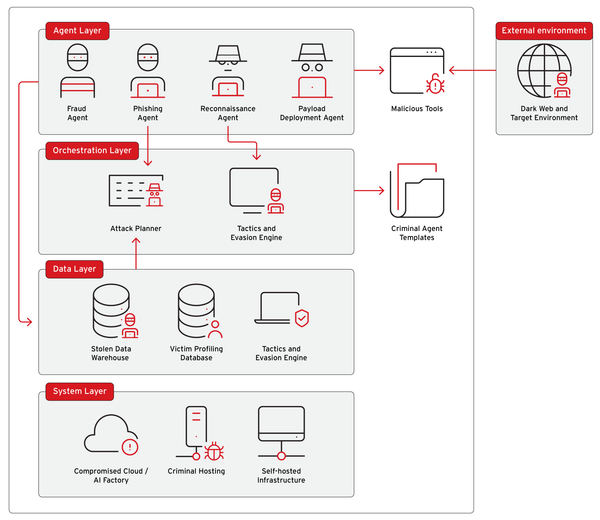France Scams 2025: The €7.6 Billion Crisis Sweeping Europe's Second-Largest Economy

Date: October 2025
Executive Summary
France is experiencing a devastating scam epidemic, with total fraud losses reaching €7.6 billion ($8.3 billion) in the last twelve months alone. Over half of French adults (54%) reported falling victim to scams in 2025, with the average loss per victim exceeding €750. As Europe's second-largest economy and a key EU member state, France has become a prime target for sophisticated fraudsters, with Gen Z surprisingly emerging as the most vulnerable demographic—nearly a third of all victims are in this age group.
The French scam landscape represents a microcosm of broader European fraud trends, combining traditional investment scams with cutting-edge social engineering tactics. Fake bank advisor scams have become the number one threat facing French banks in 2024-2025, accounting for 43% of all digital banking fraud. The sophistication of these attacks, combined with France's 94% digital banking adoption rate, has created a perfect storm for cybercriminals.
What makes France's situation particularly alarming is the underreporting crisis: the Observatory for the Security of Payment Means estimates less than half of known fraud in France is reported to French police, meaning actual losses could be nearly double official figures. As France's regulatory bodies—CNIL, AMF, and ACPR—impose record fines and launch aggressive anti-fraud campaigns, the nation stands at a critical juncture in its battle against financial crime.
The Numbers: A Nation Under Siege
Total Financial Impact:
- €7.6 billion ($8.3 billion) in total scam losses in the last 12 months
- €750+ average loss per victim
- €3.64 cost to businesses for every euro lost to fraud (€3.31 for retailers, €4.12 for financial institutions)
- Digital banking fraud losses rose 9% in France last year, accounting for more than 70% of all large-value fraud
Victim Statistics:
- 54% of French adults fell victim to scams in the past year
- 72% of those aged 35 and younger received scam messages, with 16% falling victim
- Nearly a third of victims are Gen Z, with 17% identifying as highly educated
- 45% of potential victims are men under age 35
Regulatory Enforcement:
- 87 sanctions imposed by CNIL in 2024, totaling €55,212,400
- €325 million fine imposed on Google by CNIL in September 2025
- €150 million fine imposed on SHEIN by CNIL in 2025
- €50 million fine imposed on ORANGE in November 2024
Investment Fraud:
- Investment scams have tripled over the last three years in France
- €69,000 average loss for investment scam victims
- €29,000 average loss reported to the AMF for all scams as of November 2024
- €500 million estimated annual loss to financial fraud according to Paris Public Prosecutor's Office
Top Scam Types Devastating French Consumers
1. Fake Bank Advisor Scams (The #1 Threat)
Fake bank advisor scams pose the greatest challenge to French banks in 2024-2025, accounting for 43% of all digital banking fraud in France. These sophisticated social engineering attacks have evolved into the nation's most devastating fraud category.
How It Works: Fraudsters call victims claiming to "help" them stop alleged fraud on their account, asking them to approve transactions or requesting login details to carry out unauthorized transactions from personal accounts. A new variant involves sending a courier to the victim's home to collect a supposedly faulty bank card.
This scam type alone led to more than €115 million in losses in the first half of 2023, with trends suggesting continued year-over-year increases.
Recognition:
- 88% of French people are now aware of fake bank advisor scams, yet they remain highly effective due to sophisticated impersonation techniques including spoofed phone numbers and compromised customer data.
2. Investment and Cryptocurrency Scams
Investment fraud has exploded across France, with cryptocurrency scams leading the charge as part of broader European criminal networks.
The Crisis:
- Investment scams have tripled over the last three years, with more than 3% of all French citizens—an estimated 22.7 million people—admitting to losing money to this scam type
- Since the second half of 2023, many scams have targeted crypto-assets
Cross-Border Operations: A cross-border cryptocurrency scam reached victims in at least 23 countries, including France, Germany, Italy and Spain, with losses exceeding €100 million. The scam ran for years, starting as early as 2018.
Tactics: Fraudsters use well-honed arguments to lure potential victims with so-called guaranteed high-yield investments. They put immense pressure on victims and increasingly use fake videos and press articles replicating celebrities' physical characteristics, sometimes using artificial intelligence.
3. Shopping Scams and "Unexpected Money" Schemes
Shopping scams and unexpected money scams (where scammers attempt to convince consumers they're owed money they have yet to receive) were reported as the most common types of scams victims experienced.
4. Phishing and Identity Theft
Nearly 9 out of 10 French people know what phishing is—when a fraudster contacts you by email or text message claiming to be an official organization. Despite high awareness, phishing remains devastatingly effective.
The Problem: Identity theft is on the increase, including the identities of authorities and their employees, financial institutions and their advisors or non-financial undertakings. A third of identity theft scams reported to the AMF fraudulently use its identity.
5. Romance Scams
84% of French people are aware of romance scams, where criminals create relationships to extract money or personal information from victims.
6. Ransomware and Computer Extortion
80% of French people are aware of computer ransom scams, reflecting the prevalence of ransomware attacks targeting both individuals and businesses.
7. Loan and Credit Scams
76% of French people are aware of loan scams. These scams result in average losses of €12,000 for loan scam victims, according to cases reviewed by authorities.
8. "Scam on Scam" Fraud
A new technique emerging in France can be described as "square fraud" or "scam on scam," where fraudsters target previous scam victims with promises to recover their lost funds—for a fee, of course.
The European Connection: France in the EU Fraud Landscape
France's position as a major EU economy makes it both a target and a participant in cross-border European fraud networks.
EU-Wide Financial Fraud: The European Banking Authority and European Central Bank's 2024 report reveals total fraud losses in the European Union of €4.3 billion in 2022 and €2 billion in the first six months of 2023.
Cross-Border Complexity: E-money transfers fraud has surpassed card payment fraud, with cross-border transactions playing a major role in increased fraud rates. The lack of harmonized regulations across jurisdictions provides opportunities for criminals to exploit regulatory gaps, particularly in cross-border payments.
Coordinated Investigations: International fraud investigations involving France, Spain, and Israel have targeted investment fraud schemes. One operation in January 2025 resulted in six arrests after a French citizen was deceived between April and May 2022, believing he was making substantial investments in renewable energy contracts.
What's Not Working: The Underreporting Crisis
Perhaps the most alarming aspect of France's scam epidemic is the massive gap between actual fraud and reported incidents.
The Reporting Problem:
- The Observatory for the Security of Payment Means estimates less than half of known fraud in France is reported to French police
- Nearly three-quarters of scam victims failed to report their scam to law enforcement
Why Victims Don't Report:
- Perceived futility - Many victims believe nothing will come of reporting
- Embarrassment - Shame about falling for scams
- Complexity - Complicated reporting procedures
- Alternative remedies - Use of civil compensation schemes instead
Impact on Recovery: Among scam victims who managed to recover funds, 46% said they were able to recoup at least part of their losses, while 33% reported no ultimate loss.
What's Working: France's Multi-Agency Response
France has mobilized a comprehensive regulatory and enforcement apparatus to combat fraud, with multiple agencies coordinating efforts.





